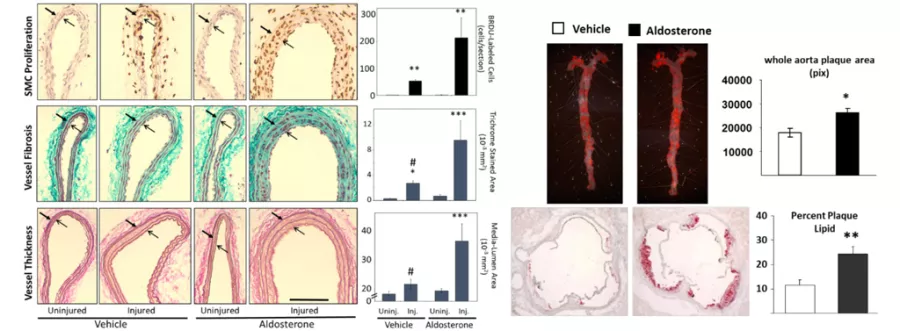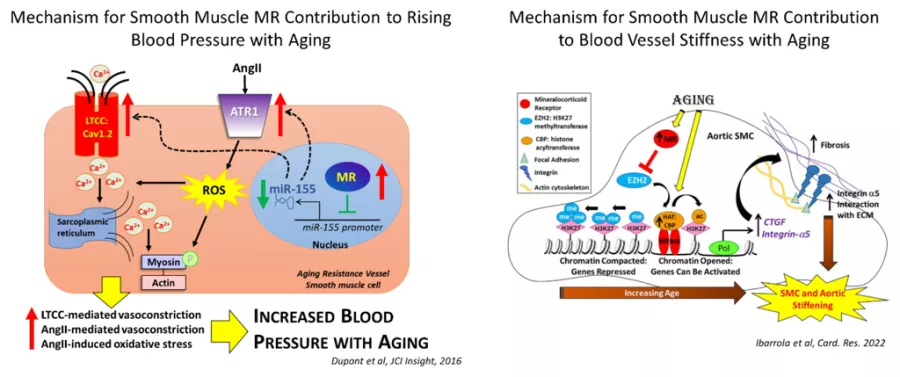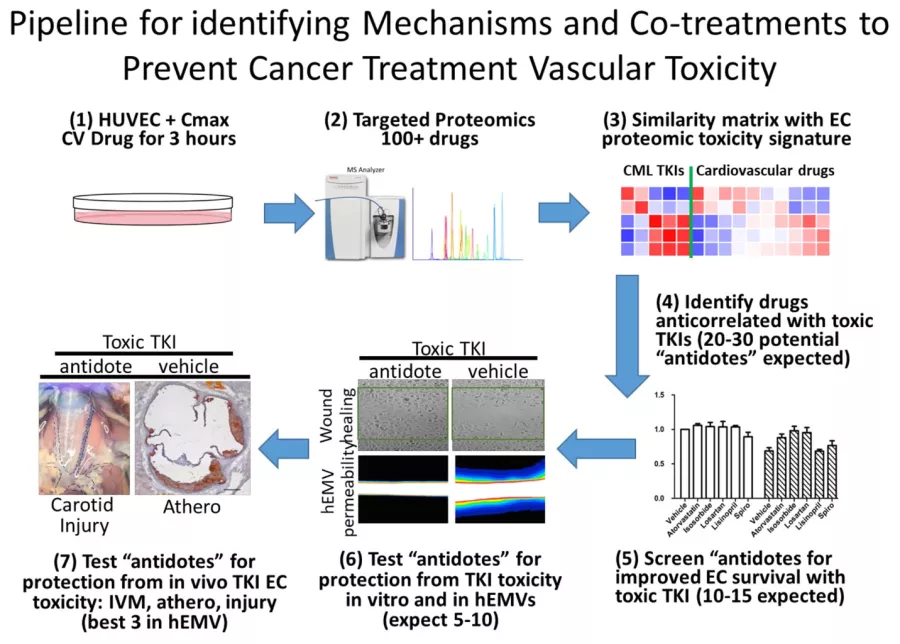
A major area of interest is the role of the hormone aldosterone and the receptor by which it functions, the mineralocorticoid receptor (MR), in the molecular mechanisms of cardiovascular disease. The steroid hormone aldosterone is the final step in the renin-angiotensin-aldosterone pathway that regulates blood pressure and electrolyte homeostasis by activating MR in the kidney to regulate genes involved in renal sodium handling. We and others have demonstrated that MR is expressed in cells of the human blood vessel, supporting the possibility that direct effects of aldosterone on the vasculature could play a role in vascular function and disease. This is clinically significant because, in human clinical trials, pharmacologic inhibition of the MR prevents heart attacks, strokes and cardiovascular deaths with minimal effects on systemic blood pressure.
A second major area fits in the field of cardio-oncology. The Jaffe lab is exploring the impact of cancer treatment on blood vessels and how this might contribute to side effects in cancer survivors. We are exploring the molecular mechanisms for these clinical findings in order to gain a better understanding of the mechanisms of cardiovascular disease and to identify novel therapeutic drug targets for common vascular diseases or to protect cancer patients from adverse side effects.
The Jaffe laboratory routinely uses in vitro molecular and cellular biology methods, primary human vascular cell culture models, state-of-the-art transgenic mouse models with in vivo capabilities to study rodent models of cardiovascular physiology and disease, unbiased transcriptomics, proteomics, and epi-genomics methods, and translational studies utilizing human samples from our patients across Tufts Medicine.
Current projects include:
We have demonstrated that MR is expressed in human vascular cells where it acts as a ligand-activated transcription factor to regulate gene expression in response to the hormone aldosterone. In human vascular smooth muscle cells, we have found that MR regulates genes involved in vasoconstriction and stiffness to contribute to rising blood pressure. In endothelial cells, MR contributes to blood vessel inflammation and atherosclerosis. It does this by sexually dimorphic mechanisms that are under investigation.

Learn more about this work in Dupont et al, 2016 and Ibarrola et al, 2022 and by reviewing the figure below.

Learn more about this work in Gopal, et al 2016 and by reviewing the figure below.

Lab members
- Qing Lu, Research Associate
- Jaime Ibarrola, PhD, Postdoctoral Research Fellow
- Richard Travers, MD, PhD, Postdoctoral Research Fellow
- Nicholas Camarda, Graduate Student (MD/PhD program), Tufts Graduate School of Biomedical Sciences
- Alec Stepanian, Graduate Student (MD/PhD program), Tufts Graduate School of Biomedical Sciences
- Nicole Wolter, Graduate Student (MD/PhD program), Tufts Graduate School of Biomedical Sciences